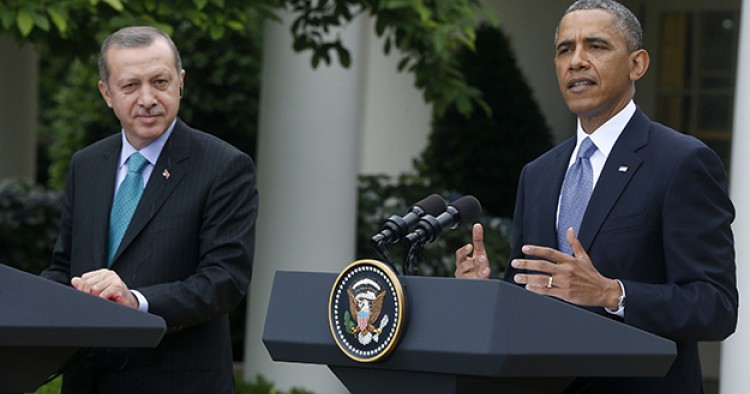Ankara and Washington once again are wide apart on regional objectives. Not since 2003 and, for some, not since Cyprus in 1974 have the two capitals seen the same crisis so differently. Moving back onto the same page will require a series of concrete steps. President Obama reportedly has ordered a review. One of its main objectives should be to bring Turkey and the United States closer together on goals and tasks each will undertake. The United States cannot build a stable coalition without Turkey, and Turkey cannot accomplish its aims without the United States.
In reading the Syrian and broader regional picture, the Turks are right about three things. First, they were right to oppose Bashar al-Assad early on. The region will never be stable if he survives in power. Secondly, if the PKK and the PYD emerge from Kobani as heroes, they may well up the ante in peace negotiations with Turkey with unacceptable and destabilizing demands. The Turks are right to be skeptical of the PKK. Third, Ankara, along with many others, recognizes the lack of a clear U.S. strategy in the region—which enemies to attack, what territory to target, what military forces to use, what allies to join, and what final objective to seek.
The United States is also right about three things. First, Washington is right about the threat. ISIS will not disappear on its own. Its rapid expansion threatens Iraq, Jordan, Lebanon, and even Turkey, because if ISIS prevails, it will expect to wrest concessions from Turkey in any post-Assad scenario. On this point the Americans have the better argument; destroying ISIS must be the first priority. Second, the United States is correct that the lead to destroy ISIS must come from the region. In various ways, ISIS is working to polarize the Mideast Muslim world and incite a virulent anti-Western following committed to ISIS rather than to any leader in Iraq, Turkey, Syria, or Iran. The only lasting response to this challenge must come from a state and army in the region. Third, Turkey is losing support internationally and, very importantly, in the United States by appearing ambivalent about its views and relationship regarding ISIS.
Moving forward should include several key components. If Turkey wants a long-term solution in Syria, it needs to recognize the validity of the first two American points above, that is, which threat is the priority and the need for regional leaders. For its part, the United States should be clear that its long-term objective, shared with Turkey, is the overthrow of Assad, not a negotiation that leaves him in power. Second, the United States must give Turkey priority over the Kurds if Ankara is willing to commit forces against ISIS. The Turks have the power to start solving their own dilemma by engaging. Third, for now, Baghdad’s army is the key to moving ISIS backward and needs help. Beyond the 1,500 troops Obama now is providing, he should add special forces and combat advisors to further accelerate Iraq’s army reforms and military striking power. He should use the new authorization for the use of military force that he is seeking to solidify this understanding with the new GOP congressional national security leadership. Fourth, even with new American muscle, it will take time to rebuild a sufficiently effective Iraqi army to expel ISIS. Until that moment, reducing ISIS’ financial support, recruiting support, and aura of invincibility will require active Turkish engagement inside and outside the country.
Turkey and Washington have an opportunity to move quickly now to a better footing in dealing with Syria. There are several areas of agreement within reach that could strengthen their ties and undermine more rapidly the aura of ISIS’ invincibility. Given the ISIS ideology, it might unravel sooner than we think once it has to reconcile widespread failures with its professed mission for God on earth. Recent ISIS moves reflect its genuine concern that its so-called caliphate is showing cracks. Now could be a critical moment to start reversing the trend—the United States and Turkey can make that happen.
The Middle East Institute (MEI) is an independent, non-partisan, non-for-profit, educational organization. It does not engage in advocacy and its scholars’ opinions are their own. MEI welcomes financial donations, but retains sole editorial control over its work and its publications reflect only the authors’ views. For a listing of MEI donors, please click here.












